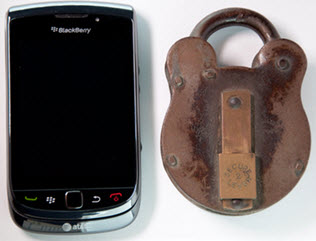-
Mobile apps and trust
0 August 2nd, 2013Applications, apps, mobile, mobile applications
August 2nd, 2013Applications, apps, mobile, mobile applicationsMobile apps might be becoming a major part of our everyday lives, but trust and security are still big concerns among consumers.
 Mobile devices hold a lot of personal information and many people rely on them for work and personal lives, storing vital pieces of data in their calenders, notes and phone books. Understandably, it means we’re all very protective of them, so trust doesn’t come easily.
Mobile devices hold a lot of personal information and many people rely on them for work and personal lives, storing vital pieces of data in their calenders, notes and phone books. Understandably, it means we’re all very protective of them, so trust doesn’t come easily.Appthority, a mobile app security firm, has studied 400 of the top free and paid-for apps and found some staggering results. The “Summer 2013 App Reputation report” found that 83% of mobile apps pose some sort of security threat.
iOS apps were found to exhibit more riskier behaviour than Android apps, 91% vs 80% respectively exhibited at least one behaviour categorised as ‘risky’. Risks included things like apps sending private information to third-party services, such as ad network companies.
You can find more results of the survey here.
Obviously, ensuring security is a top priority right from the beginning of mobile app development is a given. But there are a lot of perceived issues with trust too.
Whilst many customers love to be able to check-out on shopping apps in seconds, they’re cautious about storing bank details and credit card information in an app. Even big brands may find this to be an issue. In order to overcome this, it’s worthwhile offering options such as PayPal which are inherently trusted and will give customers a chance to check out quickly and easily.
If your app is going to include added content or in-app purchasing, label it well! One thing that will instantly lead to mistrust, and lots of bad PR, is in-app purchases which are not clear. People can get caught up in apps and with such a small screen it’s easy to accidentally press the wrong button, so although it may seem annoying ensure that at least two selections have to be made before a purchase can go ahead.
Design plays a key factor in trust too. A professional looking, well designed app which works fluidly is much more likely to gain trust than one which simply looks thrown together. This applies to the listing in the app store too, as the first impression of an app, screens shots and a lengthy explanation of the app and what it does are key to encouraging consumers to click on the download button.
Whilst stories and reports such as the Appthority one will do nothing to help trust in mobile apps, ensuring you do all you can to make your mobile app secure and trustworthy will go some way to boosting downloads.
Image source: Flickr




Recent Comments